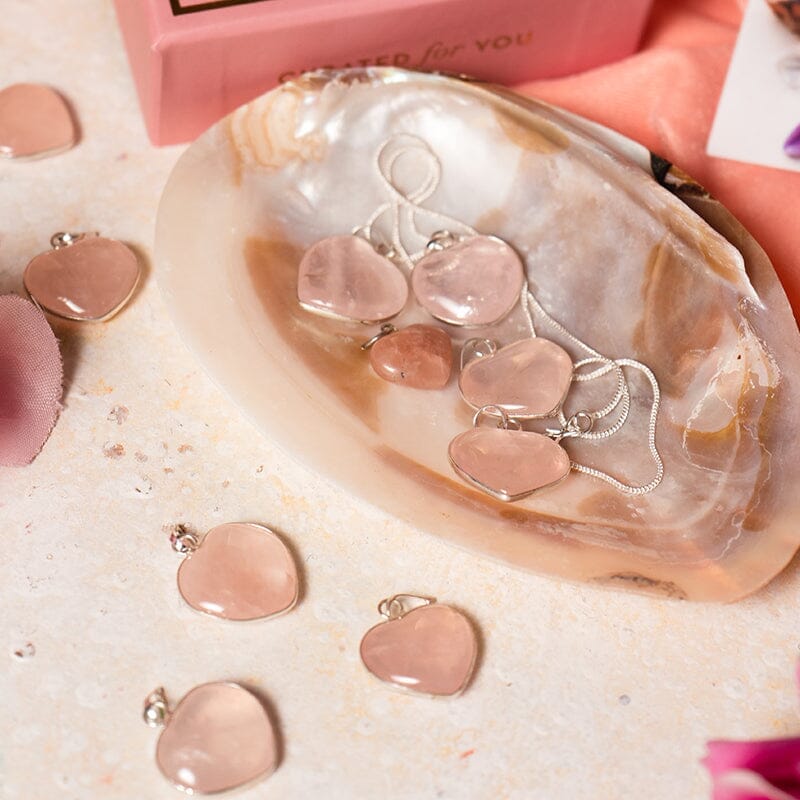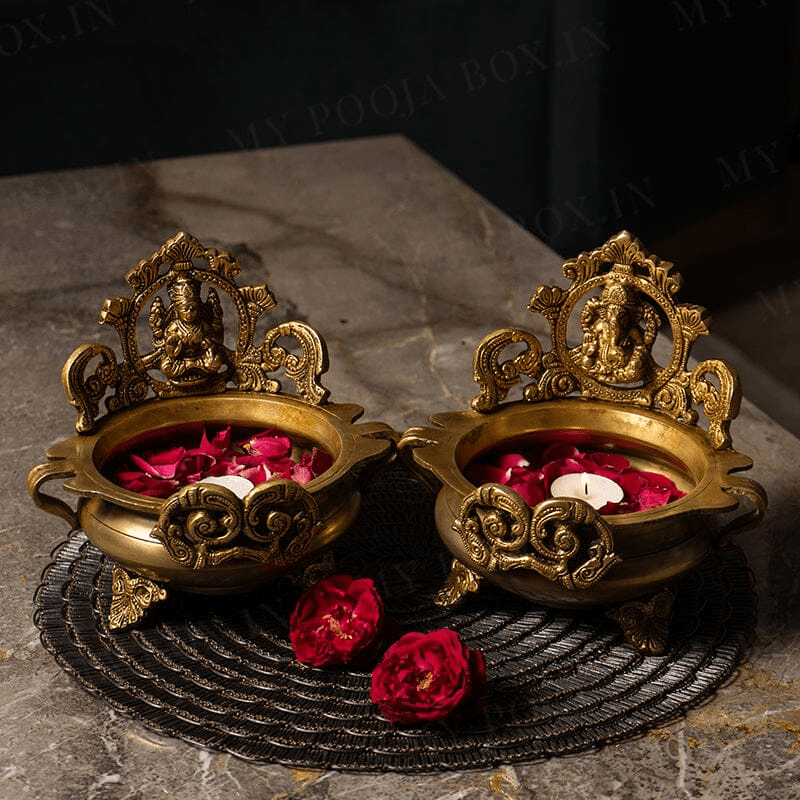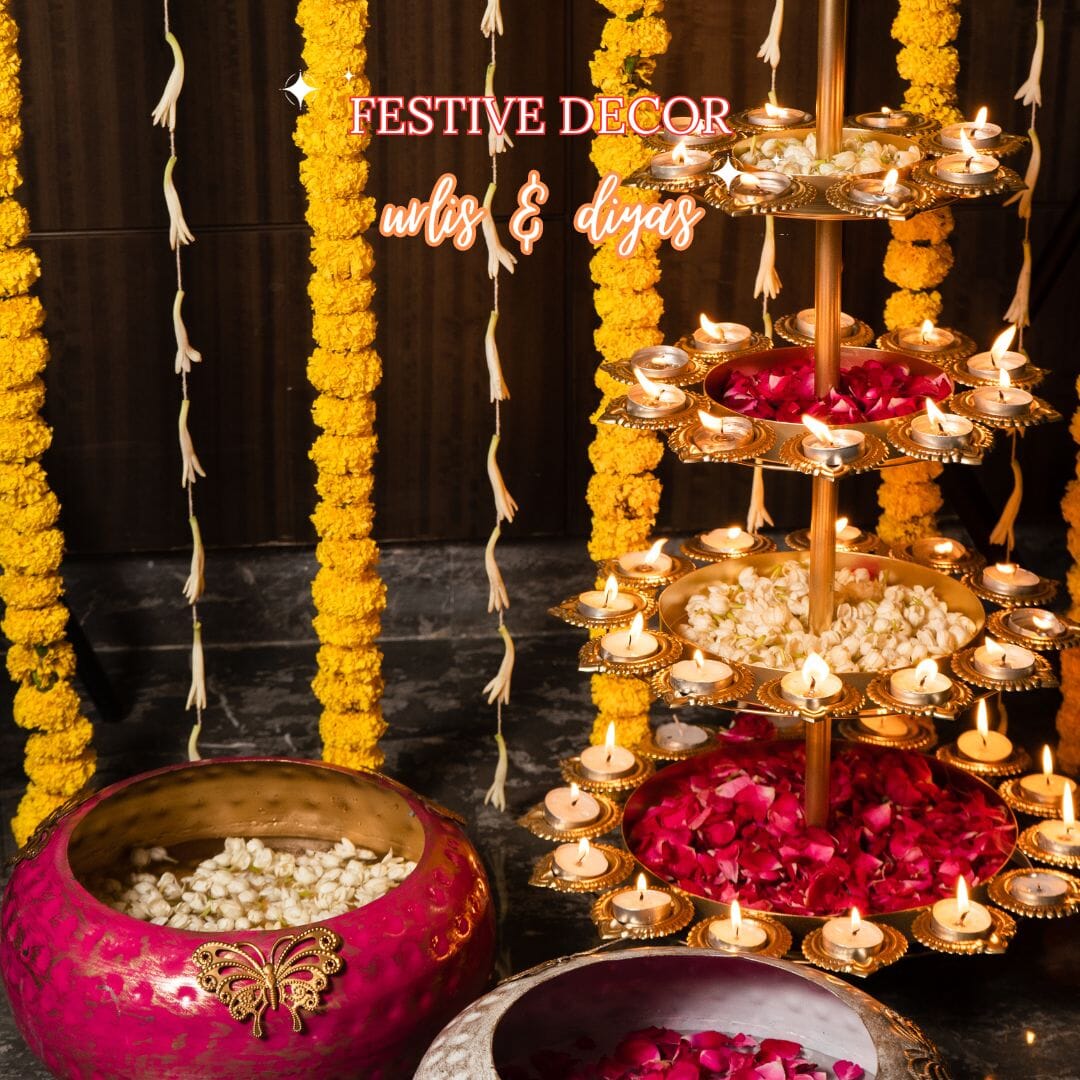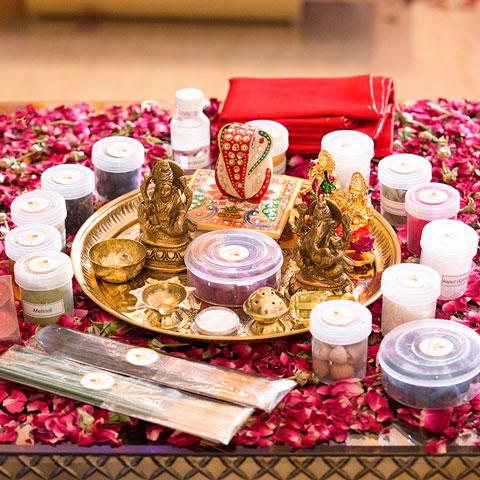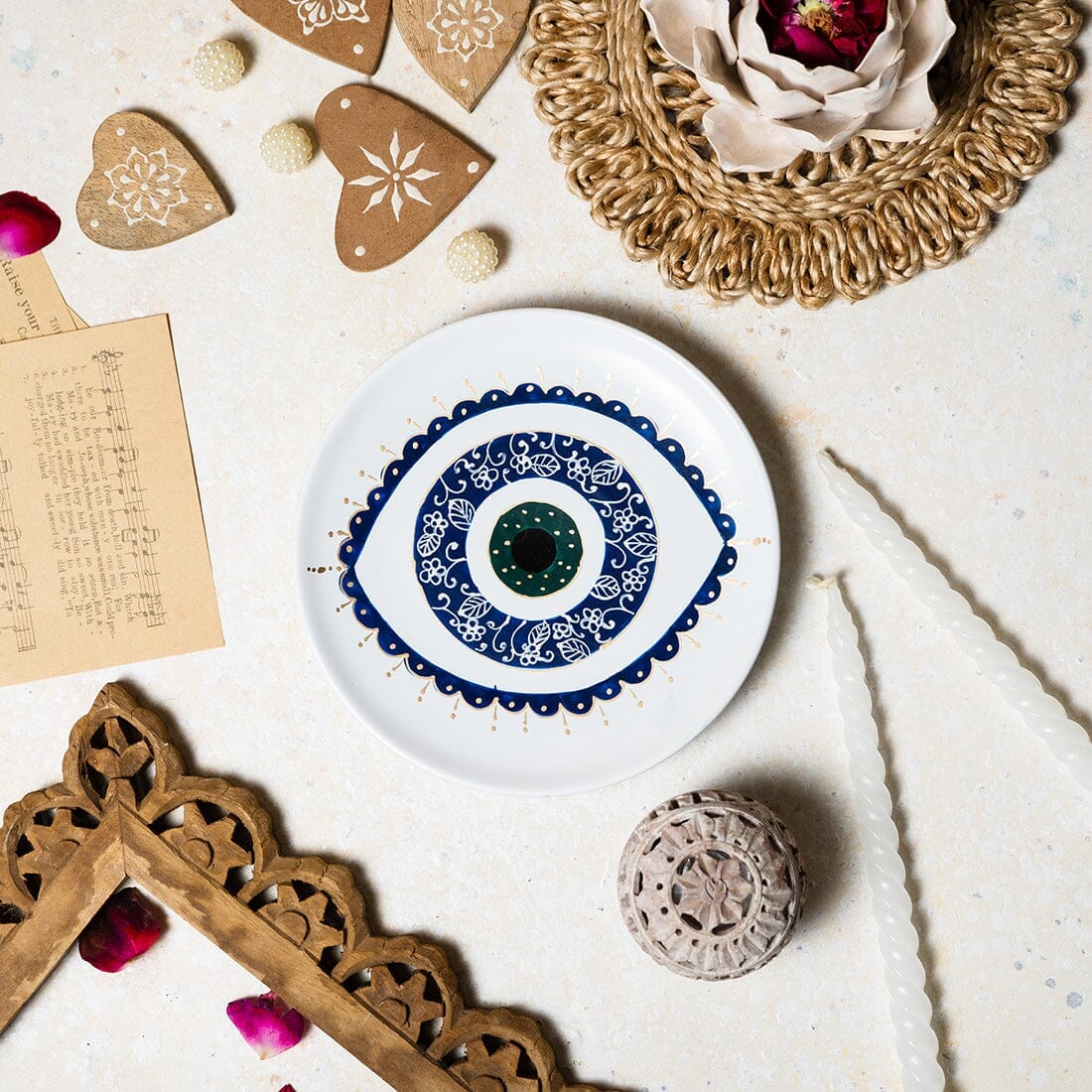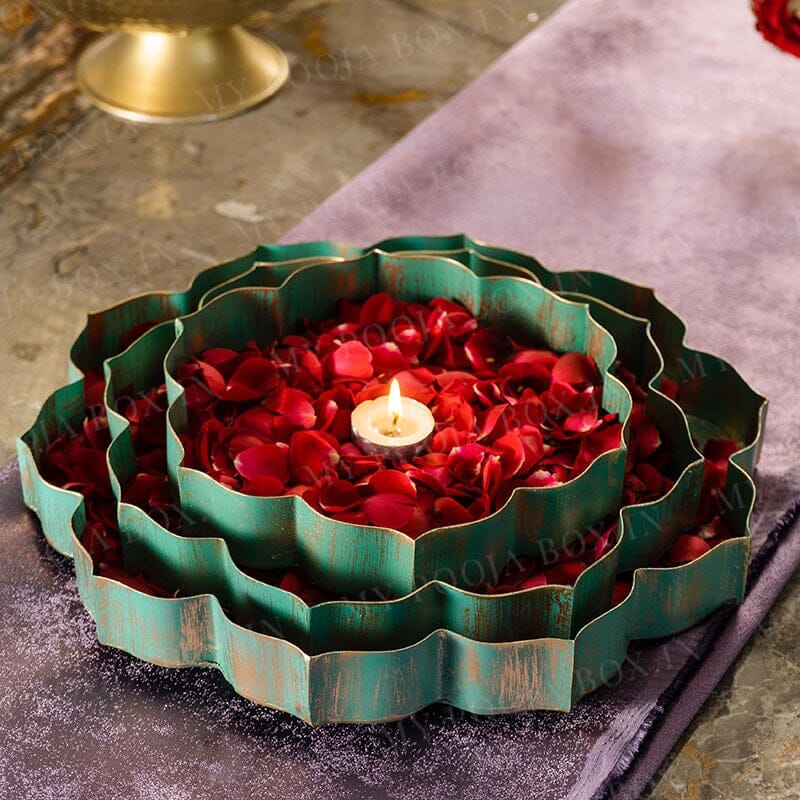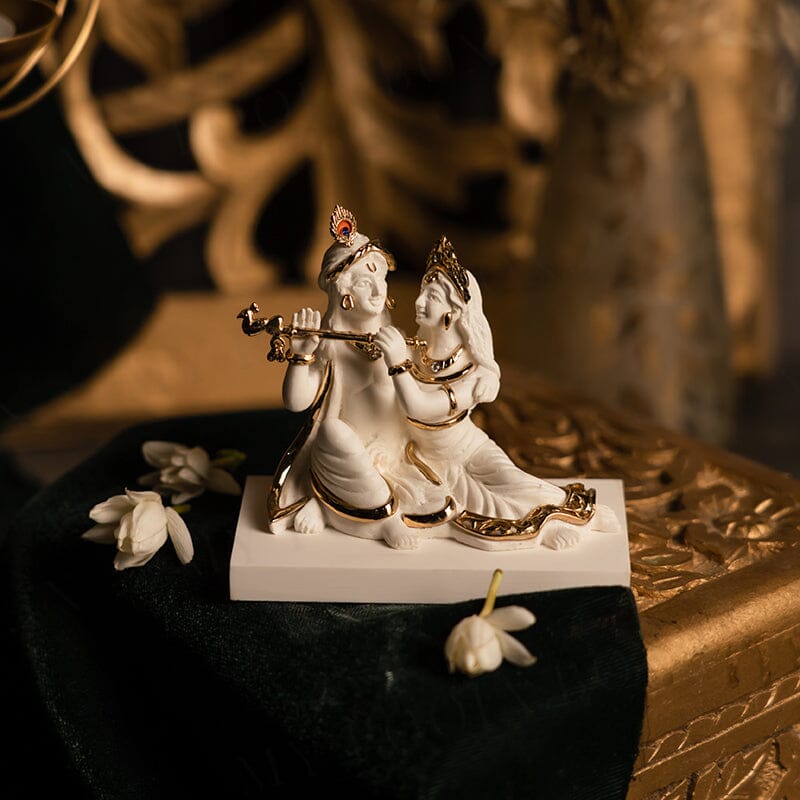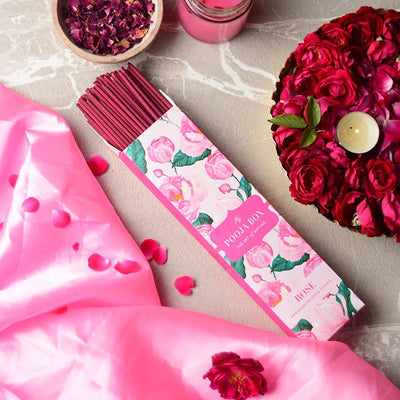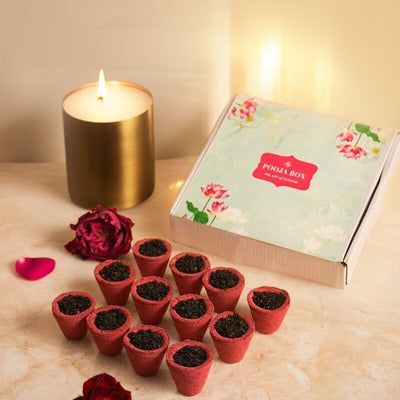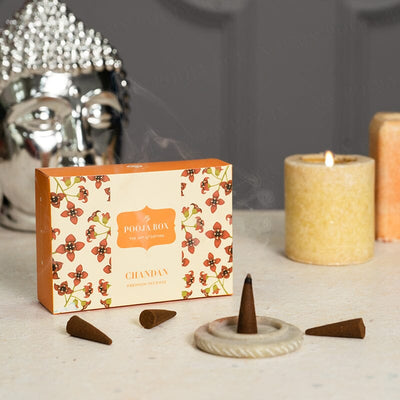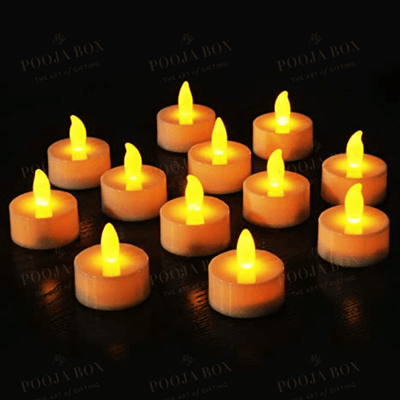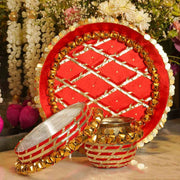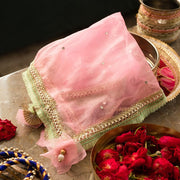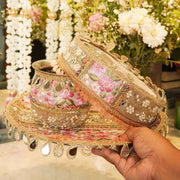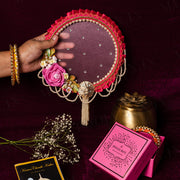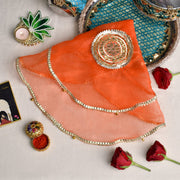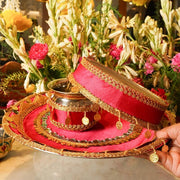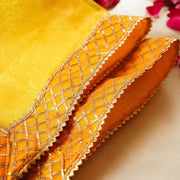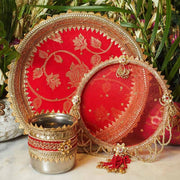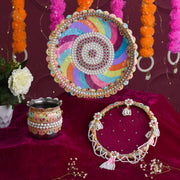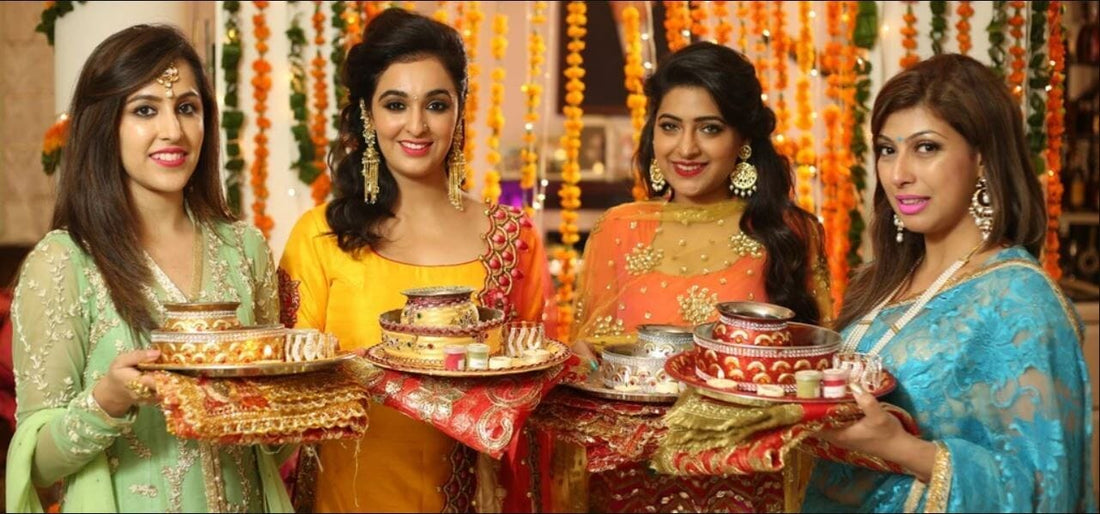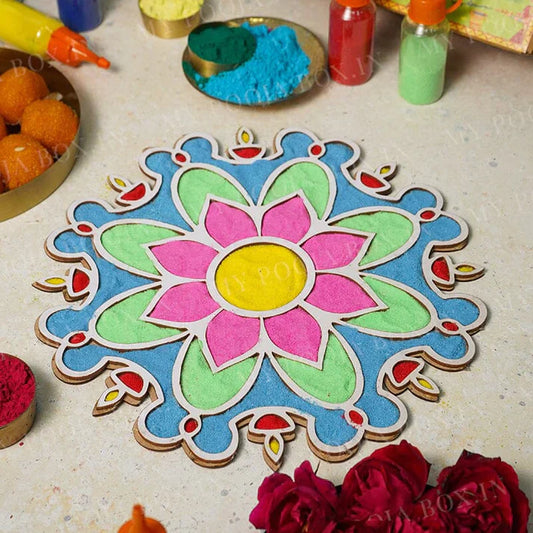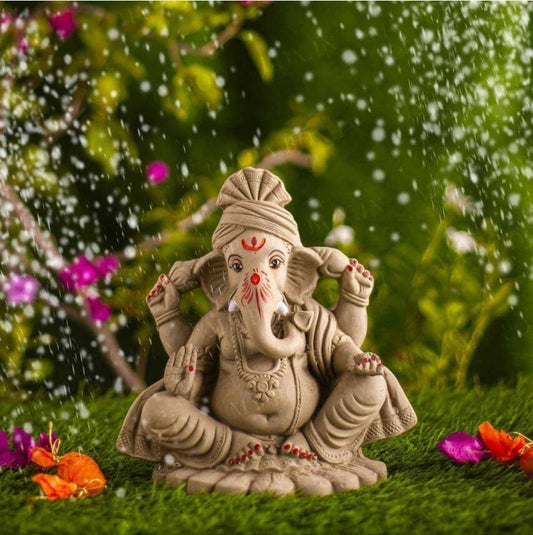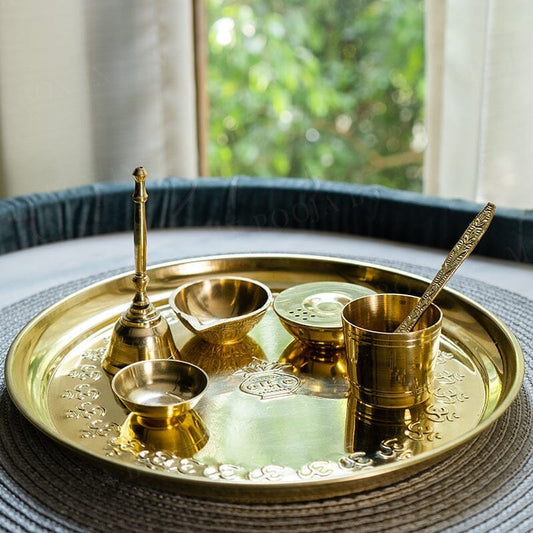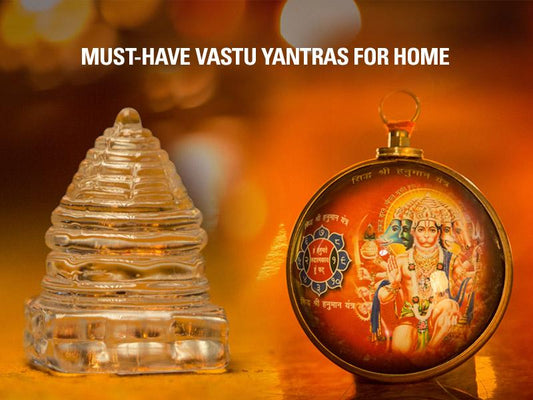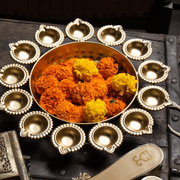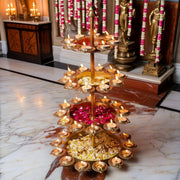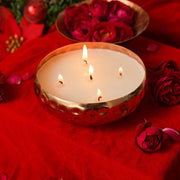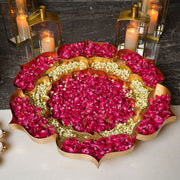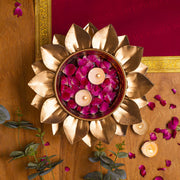Karwa Chauth is a Hindu festival celebrated by the women in northern parts of the Indian subcontinent on the fourth day after Purnima or the full moon in the month of Karthik. It is celebrated in Andhra Pradesh, Madhya Pradesh, Punjab, Rajasthan, Haryana, Delhi, Uttar Pradesh, Himachal Pradesh, and Jammu and Kashmir but the celebrations vary slightly from place to place. It is usually observed by Hindu and Sikh women for an entire day, i.e., sunrise to moonrise, by offering prayer for the protection of their husband. This ritual is found in many of the folklores and legends about various princesses.
Karwa Chauth 2024 - Date Time & Muhurat
| Karwa Chauth Event 2024 | Date & Timing |
|---|---|
| Karwa Chauth Date | Sunday, October 20, 2024 |
| Karwa Chauth Puja Muhurat | 05:46 PM to 07:02 PM |
| Puja Muhurat Duration | 01 Hour 24 Mins |
| Karwa Chauth Fast Time | 06:26 AM to 08:27 PM |
| Moonrise on Karwa Chauth Day | 07:54 PM |
| Chaturthi Tithi Begins | 06:46 AM on Oct 20, 2024 |
| Chaturthi Tithi Ends | 4:16 AM on Oct 21, 2024 |
Significance
The significance of this festival lies in the belief that fasting and prayer will ensure safety, protection, and longevity for their husband. Most of the men in the Northern states of India were recruited by the military where they had to leave their wife and children at home for a long period of time. The offerings were made to ensure their safe and quick return back home to their families.
It symbolizes the love and care between the husband and wife where the wife fasts a whole day for her husband’s safety and he, in turn, fasts in secret to show his affectionate gesture and feed his wife after moonrise, thus breaking/ fulfilling her fast.
Karwa Chauth coincides with the start of the Rabi crop cycle. The earthen pots where wheat is stored are also known as karwa so this can be celebrated as a prayer for a good harvest in the coming season.
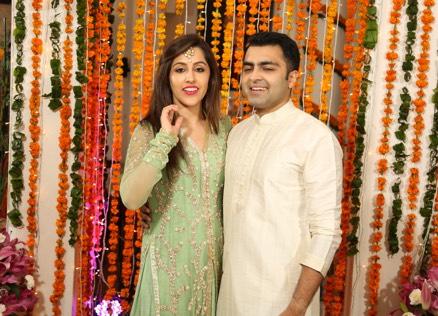
This custom also arose as a means to befriend the newly wedding bride in the neighbourhood. As the young girls are married off young and have to stay with the in-laws. Thus, Karwa Chauth was introduced to form friendship bonds among the women in the society.
Apart from the safety and protection for the husband, the festival also symbolizes the bond of friendship between the newly-wed brides. During Karwa Chauth, the women do not enter the kitchen. Instead, they gather together with other women observing the fasting and talk and dress each other up. This is another way of strengthening the bond and reminding us that friends are always around.
Karwa Chauth Rituals
Samagri required
1. Cosmetics like lipstick, nail polish, bindi, etc.
2. Jewellery and other accessories like bangles, necklaces, earrings, sandals, etc.
3. Pretty, colourful attires like sarees or lehengas. They usually choose from auspicious colours like red, orange, golden, and yellow for Karwa Chauth.
4. Puja items like Karwa Chauth thali and sieve, lamps, mud karwa, water pot, wooden chowki.
5. Offerings like Ganga water, incense sticks, sandalwood, roli, flowers, raw milk, curd, ghee, honey, sugar, turmeric, sweets & halua and Dakshina money.

Steps to Start the Karwa Chauth Fast
Morning Rituals:
● They have to wake up before sunrise (around 3 am to 4 am), bathe, and get dressed in the newly bought clothes.
● Something is given to drink and eat before the sunrise as they cannot have anything till they view the moon and break their fast. Usually, the mother-in-law gives the daughter-in-law Sargi, early in the morning.
● Certain other items are also consumed during this nirjala fast to curb the women’s hunger and thirst for the whole day.
Their Sargi thali also consist of-
1. Fresh fruits and citrus fruits like grapes, avocado, watermelon, peaches, and pomegranate help retain the water level in the body.
2. These fruits can be consumed along with yogurt.
3. Dry fruits and nuts like almonds, walnuts, cashews, raisins, and pistachios for providing nutrients and sufficient energy.
4. Coconut helps to stabilise the blood sugar level while providing nutrients and keeping you hydrated.
5. Avoid fried items, coffee, spicy food, and extremely sugary or salty food as these food items tend to leave you thirsty.

Karwa Chauth for pregnant women:
● Pregnant women are exempted from observing a full fast.
● They observe a special ritual where they can have delicacies like milk, khoya, kheer, and fruits during their fast.
● They are allowed to follow the sargi ritual instead of the traditional Karwa Chauth ritual.
About Sargi Ritual
Sargi is another type of ritual during Karwa Chauth where the mother-in-law blesses her daughter-in-law. The feni that the women have before sunrise is usually prepared by the mother-in-law for the bride. In this ritual, the bride needs to only follow the instructions given to her by her mother-in-law. If her mother-in-law allows her to consume food or other drinks during the day, then she is allowed to have them. This means that if she is allowed to have some drink or snack during the fasting, then she can do it without breaking the ritual.
Most of the time, it is the pregnant women who are made to follow this fast because fasting during this time can cause serious health problems for both the mother and the unborn child. The mother-in-law offers her milk and other dry fruits in the morning. She is given fruits every two hours to retain the water level in her body to avoid migraines, urinary infections, and low amniotic fluid levels.
The Karwa Chauth Puja
● Women gather around in a common area
● They apply henna and other cosmetics to each other. Henna is applied on their hands, legs, and even on their hair.
● Then all the women return home, bathe and wear the new garments.
● In the evening, they come together to perform the puja and worship the Gods.
● The elder women in the circle usually narrate stories relating to the myths and legends of the festival.
● Songs are sung by performing seven feris.
● The thali is passed around in a circle seven times.
Prayer
Tale of Queen Veervati
Vedsharma and his wife Leelavati had seven sons and a beautiful daughter who was the apple of their eyes. After her marriage, she observes her first Karwa Chauth fasting but she fell sick and faints due to the lack of food and water. The brothers, seeing their sister’s plight, make an illusion of the moon and get their sister to eat. Soon, it is revealed to her that her husband is dead and Goddess Indrani makes her aware of the trickery done to her by her brothers.
She is advised to repeat the fasting so that Yama returns her husband to her. Another version of the same story narrates how Goddess Parvati gives her some of her holy blood and advises her to keep her fast. Veervati sprinkles the blood on her husband’s body after observing the fast is able to revive him to life.
The preparations for the festival start days before the actual ceremony. Each woman observing the fast is required to look like a newly wedded bride so this festival involves a lot of shopping each year. Women spend a lot of time together shopping for cosmetics like lipstick, nail polish, bindi; jewellery and other accessories like bangles, necklaces, earrings, sandals; and pretty, colourful sarees or lehengas.

They also buy puja items like Karwa Chauth thali, lamps, sweets, incense sticks, and other grains that are meant for offerings. They usually choose from auspicious colours like red, orange, golden, and yellow for Karwa Chauth.
On the day of the festival, they wake up early in the morning, bathe, get dressed in the newly bought clothes, and have something to drink and eat before the sunrise as they cannot have anything till they view the moon and break their fast.
Karwa Chauth can also be performed by pregnant women but they are exempted from observing a full fast. They observe a special ritual where they can have delicacies like milk, khoya, kheer, and fruits during their fast.
The preparations for the festival start days before the actual ceremony. Each woman observing the fast is required to look like a newly wedded bride so this festival involves a lot of shopping each year. Women spend a lot of time together shopping for Karwa Chauth samagri.
For the first six feris they sing:-
“VeerokudiyeKarwara, SarvsuhaganKarwara, Aye kattinayaterinaa, Kumbh chrakhraferinaa, Aar pair payeennaa, Ruthdamaniyennaa, Suthrajagayeennaa, VeveerokuriyeKarwara, VesarvsuhaganKarwara"
The seventh one:-
“VeerokudiyeKarwara, SarvsuhaganKarwara, Aye kattinayateri nee, Kumbh chrakhraferibhee, Aar pair payeenbhee, Ruthdamaniyenbhee, Suthrajagayeenbhee, VeveerokuriyeKarwara, VesarvsuhaganKarwara".
After Prayer- Concluding Ceremony
● After performing the puja, they offer flowers, sweets, and other offerings to the deities in worship.
● The karwa chauth thali must contain an oil lamp or diya made out of wheat flour, a glass or lotta, mathri, and the sieve that you must look through.
● Light the diya using mustard oil. Place this on top of the sieve.
● The thali is handed over to their mother-in-law or sister-in-law; whoever is present.
How to break your fast?
● When this ceremony concludes, they wait for the moon to rise to complete their fasting.
● They look at the moon through either a dupatta, or in the reflection of the water in a bowl, or a sieve.
● The diya is thrown backward as offerings.
● Water & Mathri is offered to the moon, and blessings are requested.
● Through the same sieve, the woman sees her husband and prays for his well-being.
● The husband takes water and sweets or mathri from the thali and feeds it to his wife with which the fasting is completed.
It’s believed that this puja offers enormous spiritual strength and blessings by which a woman can defeat death. The blessing that she obtains after a whole day of fasting is powerful enough to ensure a long and prosperous life for her husband. It also bridges any rift between the couple or the family and tightens their bond with each other. Karwa Chauth is seen as a festival to strengthen bonds between people, may it be between the couple or between the womenfolk in the community.
